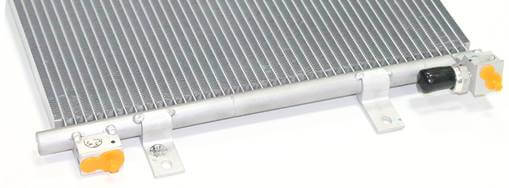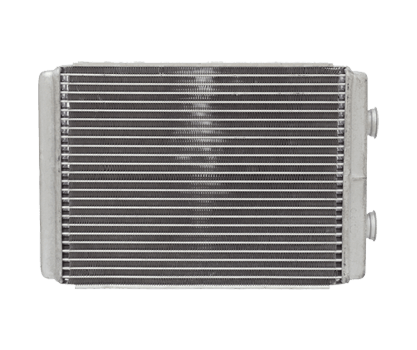Common Causes of Coil Failure (and How to Prevent Them)

In businesses, coil failure can disrupt everything, damage equipment, or cause product loss. When coils stop functioning properly, it can cause your system to overheat, reduce efficiency, or even stop working altogether. The bottom line is, if you spot any issues with your coils, don’t wait to fix them.
1. Corrosion and Chemical Exposure
Corrosion is one of the top culprits behind coil failure. It happens when coils are exposed to chemicals, salty air, or harsh environmental conditions. In coastal areas or regions with high humidity, the risk of corrosion is even greater. Over time, rust and corrosion can eat away at coil surfaces, reducing efficiency and leading to complete failure.
How to Prevent It:
Regular maintenance is important for detecting early signs of corrosion. This includes performing visual inspections to look for discoloration, pitting, or rust on the coils. Cleaning coils with non-corrosive cleaning agents can help remove buildup that may trap moisture and lead to corrosion.
Additionally, using corrosion-resistant coatings or choosing alloys designed to withstand harsh environments can add a layer of protection. If your system is in a high-humidity or coastal area, investing in coated coils may help increase the lifespan of the coils and prevent premature failure.
2. Dirty Coils
When dirt, dust, and debris build up on your coils, they can block airflow and mess with heat transfer. This can cause the system to overheat and wear out faster, leading to coil failure. Dirty coils are a bigger problem in places with lots of dust, like factories or warehouses.
How to Prevent It:
- Clean your coils regularly, especially in dusty or industrial areas.
- Replace filters routinely to avoid clogs.
- Check air ducts for blockages.
- Consider adding filtration systems to capture finer particles.
3. Poor Airflow
Insufficient airflow can be caused by clogged filters, faulty fans, or incorrect coil installation. When the airflow to the coils is restricted, they cannot release or absorb heat properly, leading to overheating and reduced coil performance. This can cause long-term damage and result in failure.
How to Prevent It:
Make sure filters are clean and air ducts are unobstructed. If you notice that fans aren’t working properly or airflow seems restricted, address the issue right away. Keeping the airflow consistent is key to preventing coil failure.
4. Refrigerant Leaks
A refrigerant leak can lead to insufficient cooling and excessive strain on your coils, ultimately leading to failure. Leaks are often hard to spot but can cause significant damage over time. Reduced refrigerant levels lead to poor heat exchange performance, which can eventually wear out your coils.
How to Prevent It:
Regularly check for refrigerant leaks and ensure that refrigerant levels are maintained. If there are any signs of a leak, get it fixed immediately to avoid further damage to the coils.
5. Overheating
Coils can overheat when they are subjected to high pressure or if there is an imbalance in the system. Overheating causes the metal in the coils to expand and contract, which can lead to cracks, bends, or other types of damage.
How to Prevent It:
Monitoring system pressure is key. Ensure that the system is running at the appropriate pressure and that there are no signs of overheating. Overheating often happens when systems are pushed beyond their capacity, so it’s important to follow operational guidelines.
6. Improper Installation
Incorrect coil installation can lead to a host of issues, including leaks, poor airflow, and strain on other system components. Coils need to be installed at the correct angle, height, and positioning to function properly. If installation is done incorrectly, it can lead to a failure before the system has even been used for long.
How to Prevent It:
Always hire experienced technicians for coil installation. Proper installation ensures the system operates at its full potential and helps prevent early failures.

What to Do if Your Coils Fail
If you suspect your coils have failed, it’s important to act quickly to prevent further damage:
- Shut down the system – Turn off your HVAC or refrigeration system immediately to avoid additional damage to other components.
- Inspect for visible issues – Look for signs of damage, such as leaks, corrosion, or dirt buildup. (While you may not diagnose the issue yourself, a quick check can help assess the situation.)
- Check refrigerant levels – Low refrigerant can indicate a leak, which may affect coil performance. If levels are low, you likely have a leak that needs attention.
- Contact a professional – Coil failure often requires professional inspection and repair. (Avoid DIY fixes to prevent further damage or voiding warranties.)
- Plan for replacement – If the coils are beyond repair, they’ll need to be replaced. A professional can help with replacement options and prevent future failures.
Contact CS Coil Today
Knowing what causes coil failure can save you from expensive repairs and help your HVAC or refrigeration system last longer. Regular maintenance, fixing issues quickly, and getting the installation right from the start are all key to keeping your coils in top shape.
If you’re dealing with coil problems or just need some help keeping everything running smoothly, CS Coil has your back with expert solutions. Based out of Houston, Texas, we supply micro-channel coil solutions, including evaporator coils, condenser coils, and fluid coolers.
Give us a call to learn more about CS Coil.